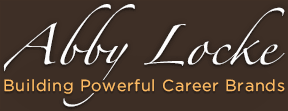
Is it possible to be a successful, engaged employee without becoming a workaholic?
That’s the question driving Quiet Quitting, an emerging career trend that has social media abuzz.
While some view this as perspective-gaining tactic to better manage one’s job and life balance, others consider it indicative of disengagement in the workforce.
A recent Gallup poll found shockingly high numbers of American workers underperforming on their assignments;.
- Could Quiet Quitting provide them with an alternative solution?
- Are there still potential drawbacks involved for individuals and society alike?
In this article, learn how you can remain productive and fulfilled at your job all while avoiding burnout.
Maintain Your Balance
Everyone needs a personal life to keep their mental health in check and prevent burnout – it’s essential!
Unfortunately, some people work so hard they forget this important lesson. Studies show that having too much on your plate is one of the biggest regrets later in life.
So if you want balance now, set boundaries for yourself where necessary – consider what do you need at home versus professionally?
Additionally be sure to limit how many hours you’re spending working each day or week; excessive overtime takes away from both happiness and productivity.
Foster meaningful connections at work to make the days fly by and reignite your energy levels.
Take necessary time off – use vacations as an opportunity to explore new places and deepen relationships with loved ones.
Try also scheduling small breaks throughout each week for a much needed mental reset.
Lastly, take steps towards self-care which not only helps you stay balanced but will increase motivation in tackling tasks on the job too!
Protect Your Career
Working can be both rewarding and draining, but the quality of your life is often directly related to what you do for a living.
Most people would agree that it is important to proactively make choices that correlate with their values and help them reach their goals.
There are two important techniques for protecting your career path: communicating directly, clarifying expectations, and providing feedback.
Communicating directly is beneficial because it prevents misunderstandings between coworkers or managers from becoming liabilities in any workplace.
Additionally, by clarifying expectations from the start and regularly requesting feedback on progress, you will better understand how your job performance affects others’ view of your work quality.
If you practice these techniques, it will increase the likelihood of having a successful career path ahead.
Expand Financial Streams
When you think of your workplace, it’s hard not to consider the financial implications.
As times change, so do your financial obligations — certainly a valid consideration.
But that doesn’t mean you have to wait and hope for a job offer in another company.
Now is the time to take action and create financial security for yourself by finding a meaningful way to make use of your current job or finding new and exciting prospects.
To keep yourself solvent, consider how you can turn your current employment into an opportunity to explore possibilities such as investing, learning new skills and honing existing ones.
Put simply, there’s more than one way to stay solvent and prepare for your future — it’s all about creativity, planning and taking initiative.




